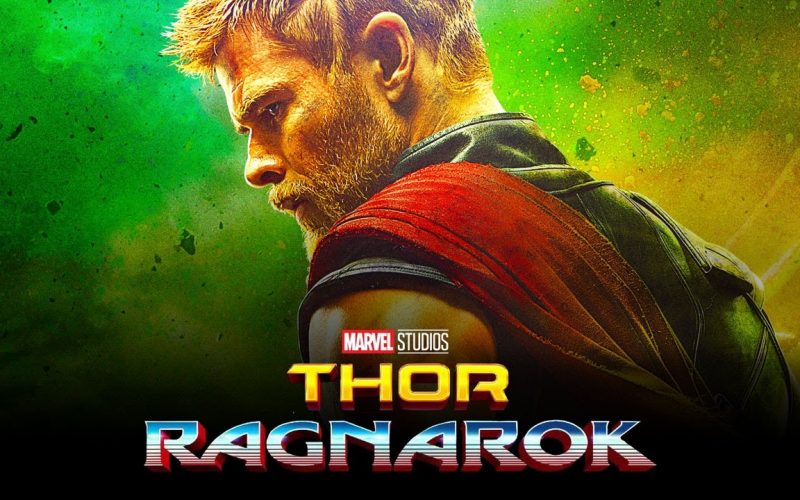Thor: Ragnarok (2017) – Review.
Asgardians Of The Galaxy.
*** MILD SPOILERS ***
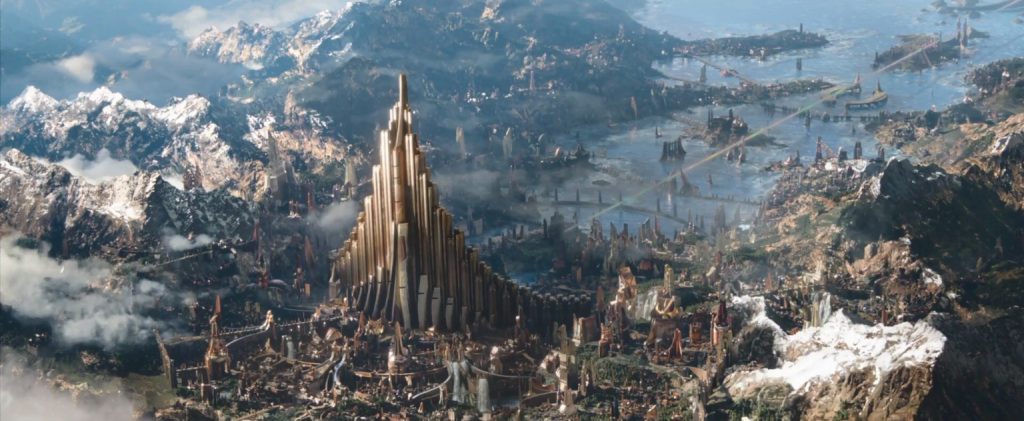
We are now 9 years into the Marvel Cinematic Universe and Thor: Ragnarok, the latest instalment in Marvel Studios’ hugely successful franchise, now the most financially successful franchise ever, is here. It’s the third Thor film and also the third MCU film released this year. The complexity of the MCU in that it consists of not only solo films and huge team-ups but also several solo character-centric trilogies, marks it out as a franchise like no other. That the mammoth project has been so successful is credit to Marvel Studios for having the courage to take on such a risky venture. It truly is a franchise like no other and as much as many are bemoaning the proliferation of comic book adaptations that we’re now seeing on a regular basis, it seems that it’s a genre that won’t be going away any time soon.
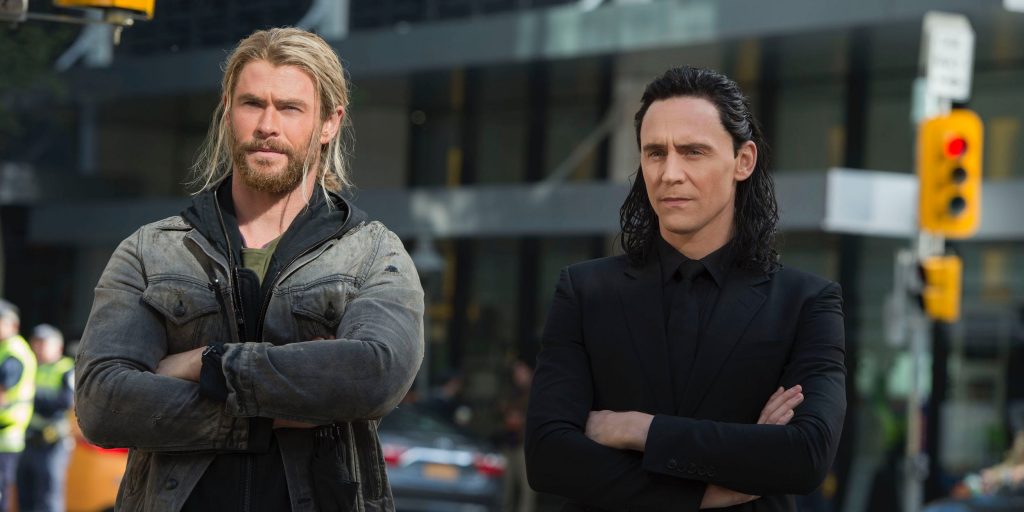
It was the first Thor film, released in 2011, that was something of a litmus test for the MCU for a number of reasons. Firstly the titular character with his godly status and literally out-of-this-world origins was a factor that many fans, quite rightly, had their doubts about regarding how well he would translate to film. Through a combination of brilliant writing, casting and the bold choice to hire Kenneth Branagh as director, the final film was a resounding success. Not only was the character faithfully portrayed by Chris Hemsworth, but by transposing him from Asgard to Earth and stripping him of his powers for a significant portion of the film, Branagh put the classic fish out of water trope to great use and managed to avoid the film feeling like too much of a jarring departure from the previous MCU films which were firmly rooted on Earth. The benefits of this steady introduction to the greater Marvel universe beyond Earth was two-fold. As well as successfully introducing Asgard in a way that made it somehow fit perfectly with the rest of the franchise, it made the later introduction of the wildly out-there Guardians of the Galaxy seem much less of a leap of faith than if we hadn’t already been taken away from Earth in Thor.
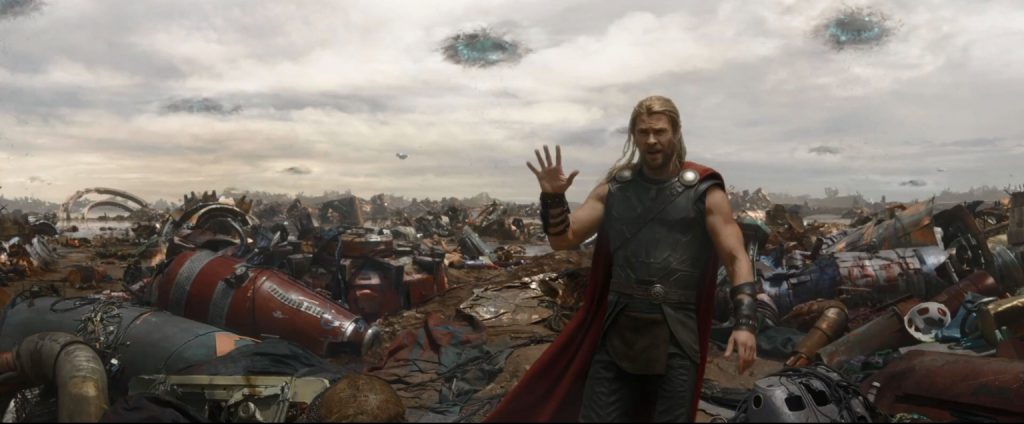 Another of the film’s strengths was its focus of the Asgardian hierarchy’s complex family dynamic. The reveal of Loki’s true heritage adding fuel to his already mischievous and ambitious ways, introduced something that would not only thread throughout all three Thor films but would also act as the catalyst for 2012’s big gamble team-up film, The Avengers.
Another of the film’s strengths was its focus of the Asgardian hierarchy’s complex family dynamic. The reveal of Loki’s true heritage adding fuel to his already mischievous and ambitious ways, introduced something that would not only thread throughout all three Thor films but would also act as the catalyst for 2012’s big gamble team-up film, The Avengers.
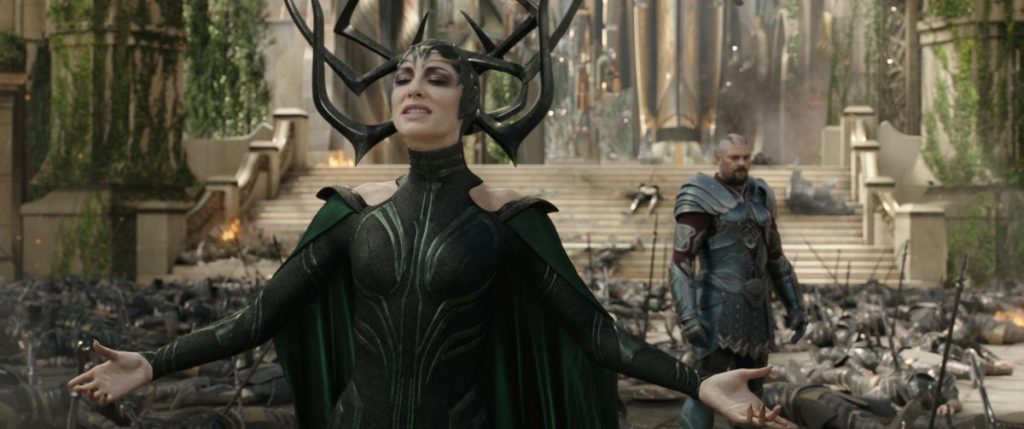 The Thor/Loki rivalry is one of the key subplots that has been crucial to the overarching MCU storyline and it’s success is bolstered by the superb chemistry between Chris Hemsworth and Tom Hiddleston. The depth of both characters that has been built up over the numerous films is commendable and whether they’re fighting, antagonising each other or sharing a rare moment of heartfelt brotherly bonding, it’s a joy seeing them on screen together. Throw in the added complexity of their differing relationships with their parents and we have an attention to character development that simply can’t be achieved in other similar franchises where sufficient time simply can’t be devoted to such things.
The Thor/Loki rivalry is one of the key subplots that has been crucial to the overarching MCU storyline and it’s success is bolstered by the superb chemistry between Chris Hemsworth and Tom Hiddleston. The depth of both characters that has been built up over the numerous films is commendable and whether they’re fighting, antagonising each other or sharing a rare moment of heartfelt brotherly bonding, it’s a joy seeing them on screen together. Throw in the added complexity of their differing relationships with their parents and we have an attention to character development that simply can’t be achieved in other similar franchises where sufficient time simply can’t be devoted to such things.

As well as their reunion in The Avengers, we’d return to Asgard in 2013 for Thor: The Dark World. Seen by many as one of the weakest entries in the MCU, due mainly to a thinly written, one-dimensional antagonist and too much time spent with our human characters on Earth, the second Thor film still has some aspects to admire. The progression of the relationship between Thor, Loki, and their parents Odin and Frigga is given further complexity as we see yet more betrayal, forgiveness, deception and redemption and the final scene with a moving exchange between Thor and Odin, grieving the loss of Loki, is beautifully played and gleefully capped by the reveal that Loki is very much alive and has in fact finally obtained the throne which he has so long desired. It’s a suitably ominous ending that will have long lasting repercussions for Thor and Asgard itself.
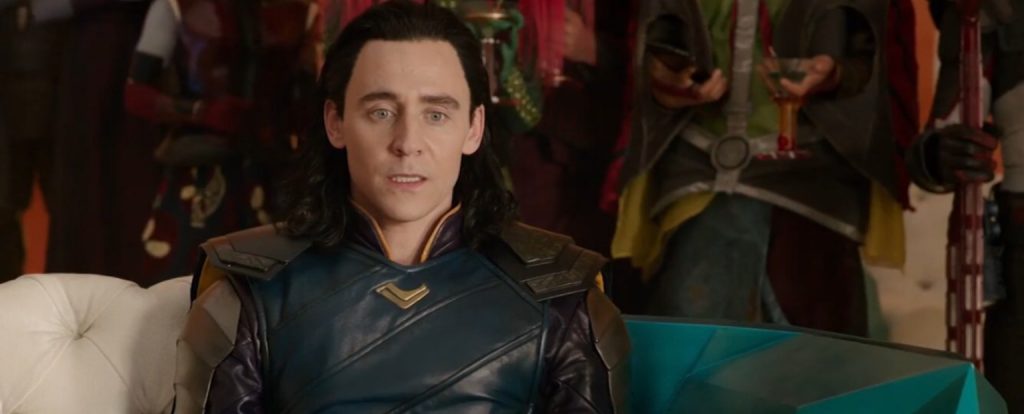
2015’s Avengers: Age of Ultron is another MCU film that progresses the Asgardian storyline, although much less so, and is one that also has its detractors but whereas Thor: The Dark World was a step down in quality in comparison to the other films, Age of Ultron is far less deserving of such criticism as in many ways it’s almost an embarrassment of riches that seems to signpost a certain degree of fans taking for granted what the franchise has achieved. What it does, to the disdain of some, is take too much time forwarding the plots of films outside of itself, in particular the setting up of the fall of Asgard, the long prophesied Ragnarok and it’s here that we find ourselves in 2017 with the 17th entry in this now colossal franchise taking forward the Asgardian story that was set in motion six years ago.
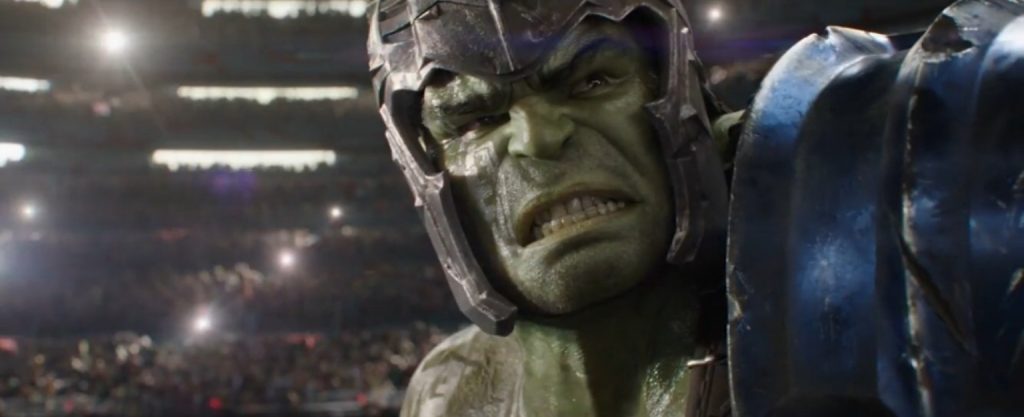
We last saw Thor in a post credits scene in 2016’s Doctor Strange and that was a scene lifted wholesale from this very film but long before we get to that we are given a fiery pre-credits scene that firmly sets out New Zealand director Taika Waititi’s touch that will inform much of the tone of Thor: Ragnarok. Whilst the titular prophecy of the fall of Asgard brings with it much death, loss and destruction, the film has a vein of broad, snarky, knowing and whatever other variety of humour you may care to mention running throughout it. Make no mistake, Thor: Ragnarok is a funny film, it’s only the constant sense of purpose, that of Thor’s mission to save his homeland from utter ruin, that pulls the film back from being an outright comedy at times. How much you like Thor: Ragnarok will be in part, dependant upon your tolerance of humour in these Marvel films.
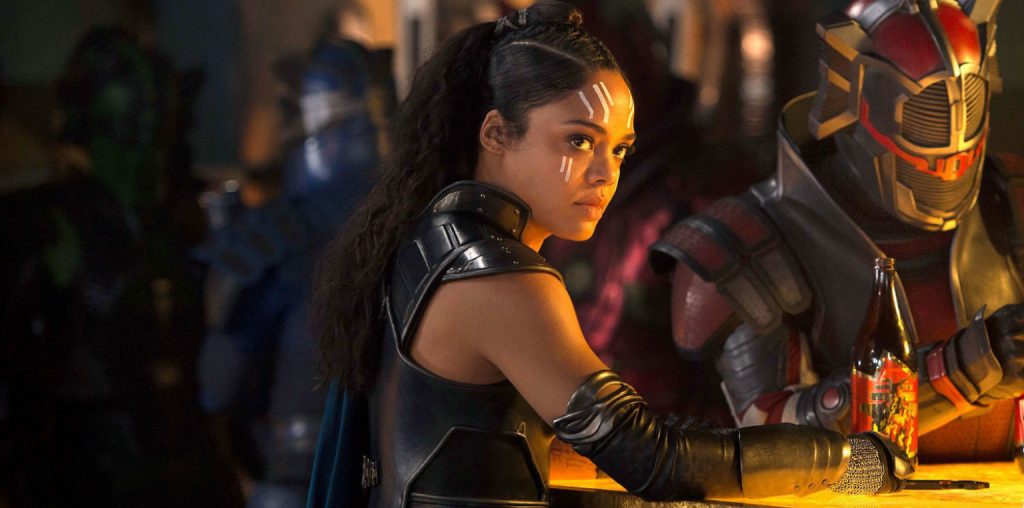
I’ve heard of and read much Marvel bashing that the films are too light in tone and rely far too much on humour but if anyone thinks that characters dressed like this, and in such far fetched situations as they often find themselves should be taken absolutely seriously all of the time then I’m inclined to believe they are unfamiliar with much of the source material. There is frequent humour in the comics, both Marvel and DC and it’s always been there be it subtle or overt. They often have a lightness of tone that makes the darker elements that much more effective and such an approach is used here. Waititi’s previous films have had a wicked sense of humour and a well balanced lightness of tone without ever feeling twee or cloying and that same balance of humour is found here. That said I wholeheartedly understand that the film will undoubtedly have too much humour from some tastes and there were times when I longed for a slightly darker tone and greater sense of risk and uncertainty but having had some time to mull over the film, it’s frequent reliance on humour acts as a cushion for what are some very dark moments peppered throughout. For our protagonist, Ragnarok is filled with loss. Throughout the film we will learn of one significant loss he has already suffered yet strangely that’s one that frees him up from being sidetracked by unnecessary subplots. He will suffer several more losses throughout the film, and none of them could be considered minor losses either.
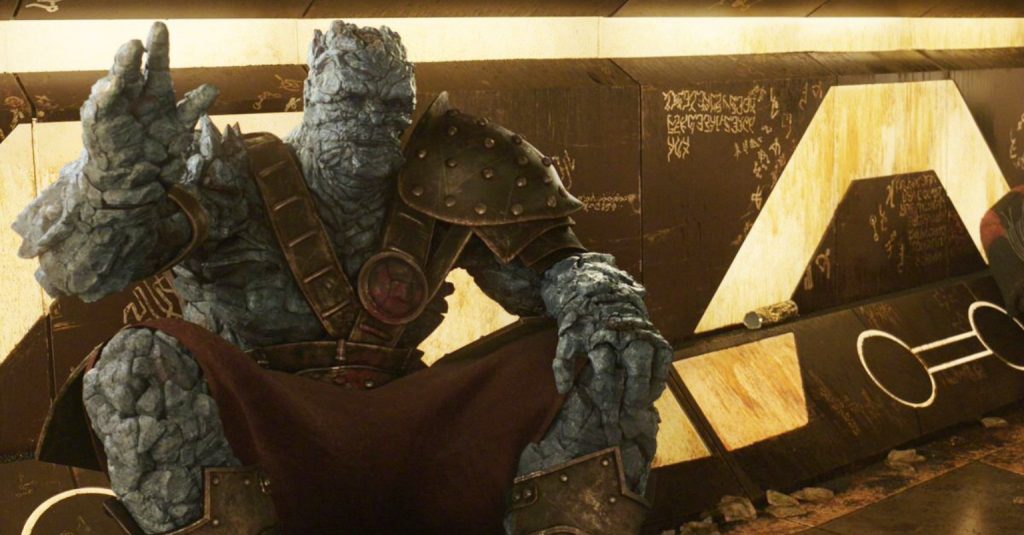
Whilst the tone of Thor: Ragnarok is laced with humour, the film doesn’t shy away from death and destruction and as much as what we see just about fits within the confines of the requisite PG-13 rating, the film throws a constant barrage of carnage and upheaval at us and the breakneck pace is at times unrelenting but never to the film’s detriment. This is a densely packed romp that introduces a slew of new characters and new worlds but also gives us a lot of what we’re familiar with, namely more Thor/Loki interaction as well as returning characters such as Anthony Hopkins’ Odin, Idris Elba’s Heimdall and more besides. And look out for some truly pleasing cameos that caused outright laughter in the early screening I was privy to.
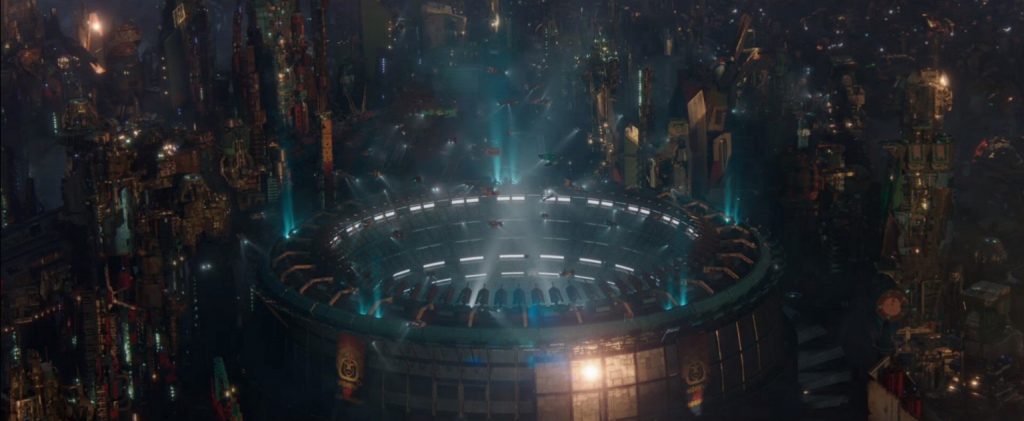
The plot careens from one set piece to the other but there’s enough connective tissue in between in the form of character moments and set-up to make the whole thing gel. The 130 minute runtime isn’t brief by any stretch yet the film doesn’t ever drag which is credit to the quality of the writing and editing.
As anyone who’s seen the trailers and marketing will doubtless be aware, Thor: Ragnarok has a uniquely vivid look that has earned it comparisons to Guardians of the Galaxy but there is a distinctly different feel to this film that’s at times more akin to Mike Hodges’ 1980 camp classic Flash Gordon but fused with a Led Zeppelin score as opposed to Queen. The score itself by Mark Mothersbaugh has a strong ‘80s vibe with its frequent use of synths and electric guitar and is simply sublime. Whilst James Gunn gifted his two Guardians films with some stunningly fitting song choices, Thor: Ragnarok’s score is far more prominent and the one song choice that almost takes on a thematic status is the one that made THAT trailer so effective, Led Zeppelin’s “Immigrant Song” which is used more than once and to great effect.
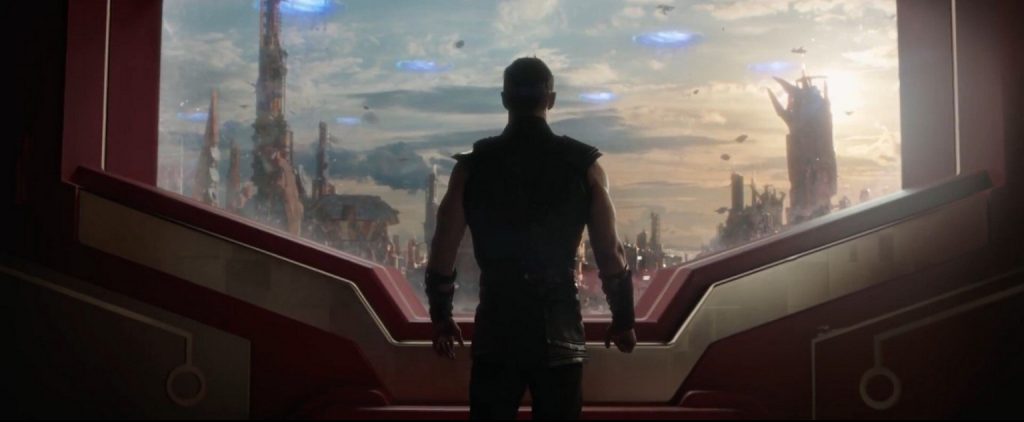 Thor: Ragnarok is a film that absolutely demands to be seen in IMAX. It is a veritable feast for the eyes and the effects for the most part are superb and help create a wholly immersive world. The planet Sakaar where Thor finds himself stranded is brought to brilliantly vivid life, the level of detail and nuance is at times staggering. The colour palette used by cinematographer Javier Aguirresarobe, walks a fine line between gorgeous and gaudy but those Guardians comparisons only hold so much weight as Thor: Ragnarok has a look unique unto itself and any initial similarities with James Gunn’s films gradually dissipate as the film finds its own identity.
Thor: Ragnarok is a film that absolutely demands to be seen in IMAX. It is a veritable feast for the eyes and the effects for the most part are superb and help create a wholly immersive world. The planet Sakaar where Thor finds himself stranded is brought to brilliantly vivid life, the level of detail and nuance is at times staggering. The colour palette used by cinematographer Javier Aguirresarobe, walks a fine line between gorgeous and gaudy but those Guardians comparisons only hold so much weight as Thor: Ragnarok has a look unique unto itself and any initial similarities with James Gunn’s films gradually dissipate as the film finds its own identity.
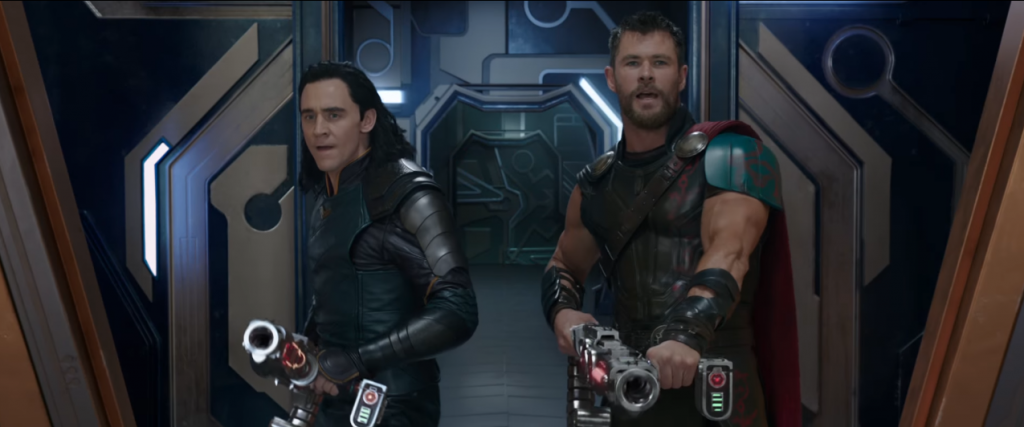
The performances from Hemsworth and Hiddleston are as usual superb. Newcomers to the MCU, Cate Blanchett as Hela, Goddess of Death and Jeff Goldblum, don’t disappoint either. Both appear to be having an absolute blast, Goldblum especially and he can’t seem to hide his gleeful relish at playing the flamboyant Grandmaster, a character whom it could be said embodies and encapsulates much of the tone of the film. It’s hardly giving away a spoiler to mention a certain Master of the Mystic Arts who makes a brief but satisfying appearance early on and adds to the overall feeling of interconnectivity of the MCU without feeling shoehorned in.
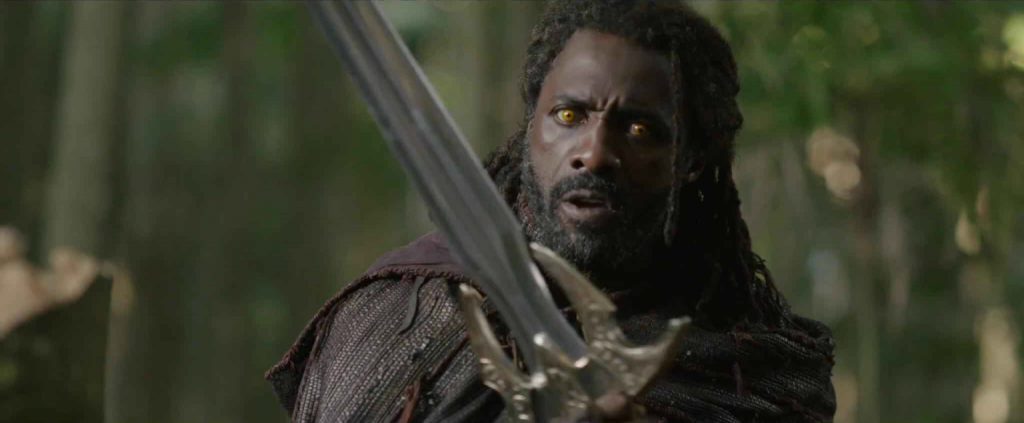
Again, it’s no spoiler to mention Mark Ruffalo who plays both Bruce Banner and his Hulking green alter-ego but it’s the latter character that has a degree of nuance and subtlety that marks him out as one of the most convincing motion capture performances ever committed to film. This is more Hulk than we’ve ever seen in an MCU film and he doesn’t disappoint one bit. Having been in his Hulk form for over two years, his persona has evolved beyond the monster he once was and some of the more childlike aspects of his character add so much depth to what he was in previous films. The big gladiatorial dust-up between Hulk and Thor is every bit as good as you’d hoped it would be and whilst Marvel Studios are locked out of making a solo Hulk film on their own due to the rights issues with Universal, they’ve found a way around it and make no mistake, this IS Marvel Studios’ long hoped for adaptation of Planet Hulk.
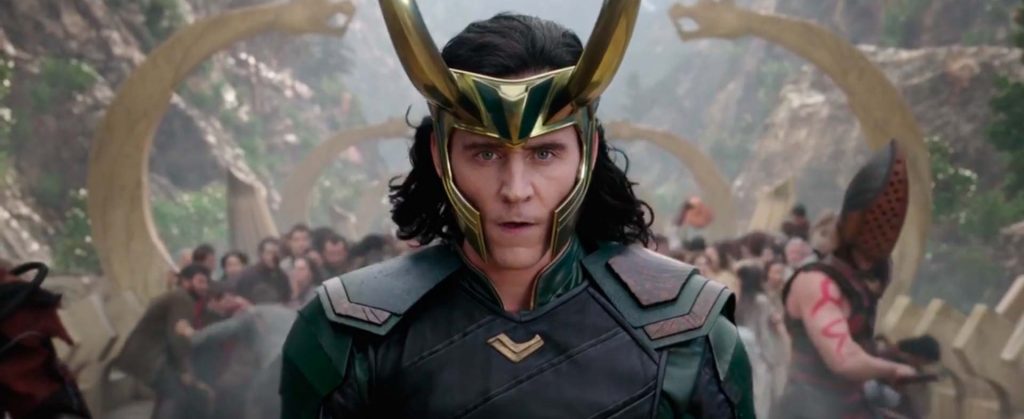
My own expectations for Thor: Ragnarok were admittedly high and I was in some part expecting to be let down to some degree, after all, how could a film hope to meet the expectations set by that incredible early trailer replete with “Immigrant Song”? But meet them it did for Thor: Ragnarok is a hugely enjoyable, science-fiction, fantasy romp. It’s gaudy, unashamedly camp in places and isn’t ashamed of its humorous overtones. It’s also exquisitely crafted, suitably epic and balances everything incredibly well. It’s director, Taika Waititi is performing a huge juggling act of tying up plot threads from previous films, introducing a slew of new characters and places we haven’t seen. He’s also setting things in place for further instalments of the larger MCU story arc but doing all this without any of these elements feeling detached and unnecessary and therefore hamstringing the film’s main purpose as a piece of thoroughly entertaining cinema.
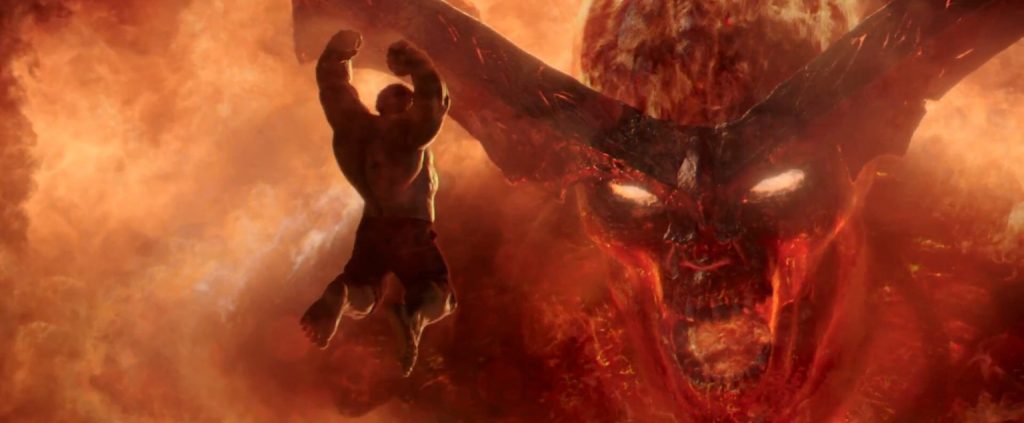
17 films strong, Kevin Feige’s Marvel Cinematic Universe shows no signs of faltering or stalling. Thor: Ragnarok is an absolute blast and a film I am intensely eager to revisit. It’s not perfect and the humour could have been reigned in a little without harming the film but this is the only major criticism I have and it’s one that many will see as a strength as opposed to a weakness. In this regard, much as Marvel Studios did with their choice of director on the first Thor film, they’ve found in Taika Waititi a director who has transitioned from smaller films to big budget affairs with aplomb, as proven by his deft handling of some simply jaw-dropping action and spectacle on a grand scale, all the while keeping true to his roots. He is in every sense the right man for the job. This is not only the best solo Thor film but also one of the best comic-book films period, and it will therefore come as no surprise that Thor: Ragnarok gets my absolute recommendation.
Film ‘89 Verdict – 9/10

